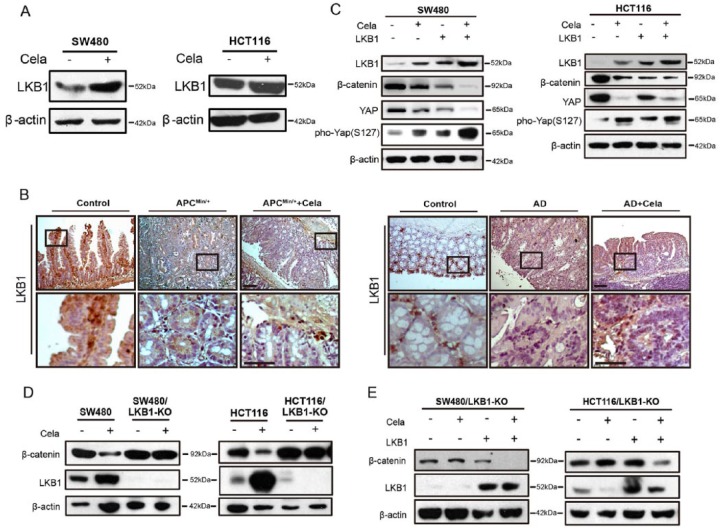Figure 4.
Celastrol-induced β-catenin degradation was dependent on LKB1.
(A) Western blot of LKB1 in SW480 and HCT116 cells, treated with or without Celastrol (0.75 μM). β-actin was used as a loading control.
(B) Immunohistochemistry staining of LKB1 in intestine tumor tissues of APCMin/+ mice and colon tumor tissues of AOM/DSS mice, treated with or without Celastrol (1 mg/kg), respectively. Wildtype C57 mice were used as control. AD: AOM/DSS mice. Scale bar: 50 μm (upper), 30 μm (bottom).
(C) SW480 and HCT116 cells were transfected with control plasmid or LKB1-expressing plasmid for 24 h, and treated with or without Celastrol (0.75 μM) for another 24 h, respectively. LKB1, β-catenin, Yes-associated protein (YAP), and pho-YAP (S127) were detected and β-actin was used as a loading control.
(D) Western blot of LKB1 and β-catenin in SW480, SW480/LKB1-KO, and HCT116, HCT116/LKB1-KO cells, treated with or without Celastrol (0.75 μM) for 24 h. β-actin was used as a loading control.
(E) SW480/LKB1-KO and HCT116/LKB1-KO cells were transfected with control plasmid or LKB1-expressing plasmid for 24 h, and treated with or without Celastrol (0.75 μM) for another 24 h, respectively. LKB1 and β-catenin were detected and β-actin was used as a loading control.

